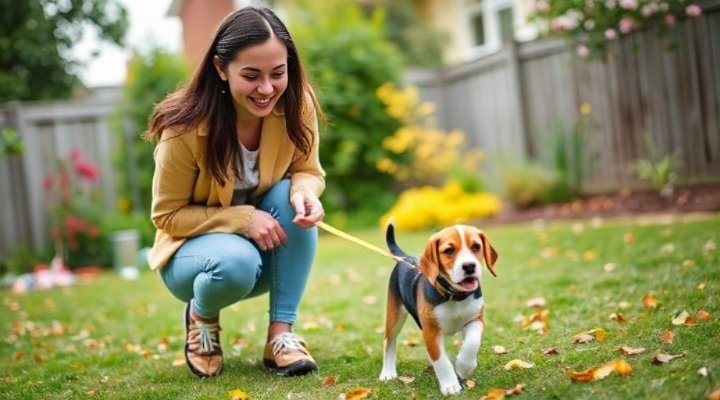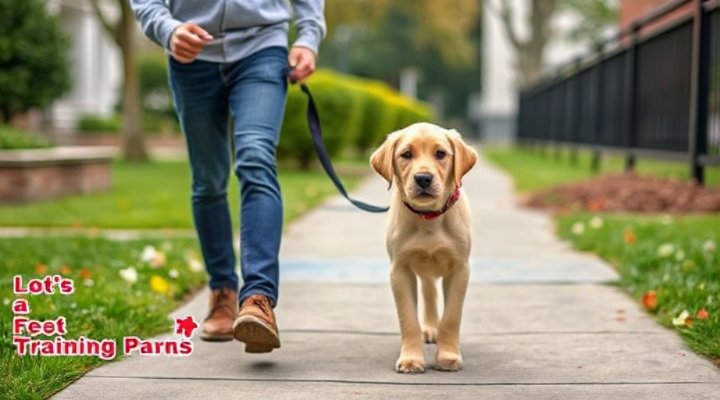Leash training a puppy is one of the most important skills you can teach your furry friend. Not only does it ensure their safety, but it also makes walks enjoyable for both of you. In this guide, we’ll walk you through the steps to successfully leash train your puppy, from introducing the leash to mastering the ‘heel’ command.

Why Leash Training a Puppy is Important
Leash training a puppy is crucial for several reasons. Firstly, it keeps your puppy safe from traffic and other dangers. Secondly, it helps prevent pulling, which can be frustrating and even dangerous if your puppy grows into a large dog. Lastly, a well-trained puppy is a joy to walk, making outdoor adventures more enjoyable for both of you.
For example, my neighbor’s Labrador, Max, was a nightmare on walks until they invested time in leash training. Now, he walks calmly by their side, making their daily strolls a pleasure.

Step 1: Choosing the Right Leash and Collar
Before you start leash training a puppy, you’ll need the right equipment. A lightweight, adjustable leash and a comfortable collar or harness are essential. For small breeds, a harness might be a better option to avoid neck strain.
If you’re unsure about the best gear for your puppy, check out our article on Petco Training Classes for expert recommendations.
Step 2: Introducing the Leash
Start by letting your puppy get used to the leash indoors. Attach it to their collar or harness and let them drag it around under supervision. This helps them associate the leash with positive experiences.
Meanwhile, reward them with treats and praise to create a positive connection. Remember, patience is key!

Step 3: Teaching the ‘Heel’ Command
Once your puppy is comfortable with the leash, it’s time to teach them to walk beside you. Hold the leash loosely and use treats to encourage them to stay by your side. Say ‘heel’ in a cheerful voice and reward them when they comply.
For more advanced training tips, our guide on Dog Behavior Training offers great insights.
Step 4: Practicing in Different Environments
After your puppy masters walking on a leash at home, gradually introduce them to new environments. Start with quiet areas and slowly progress to busier places. This helps them learn to focus on you despite distractions.
Above all, keep training sessions short and fun to maintain your puppy’s interest.

Common Challenges and Solutions
Leash training a puppy isn’t always smooth sailing. Some puppies pull, while others refuse to move. Here’s how to tackle common issues:
- Pulling: Stop walking when your puppy pulls and only resume when the leash is loose.
- Refusing to Walk: Use treats and encouragement to motivate your puppy.
- Distractions: Practice in low-distraction areas first and gradually increase difficulty.
For more tips, our article on Free Dog Training Near Me is a great resource.
Final Thoughts
Leash training a puppy requires patience and consistency, but the rewards are worth it. A well-trained puppy will enjoy walks as much as you do, making every outing a pleasant experience.
In conclusion, remember to keep training sessions positive and fun. Your puppy will thank you with good behavior and lots of tail wags!
Related Keywords: puppy leash training, how to leash train a puppy, leash training tips, dog training, puppy walking.
